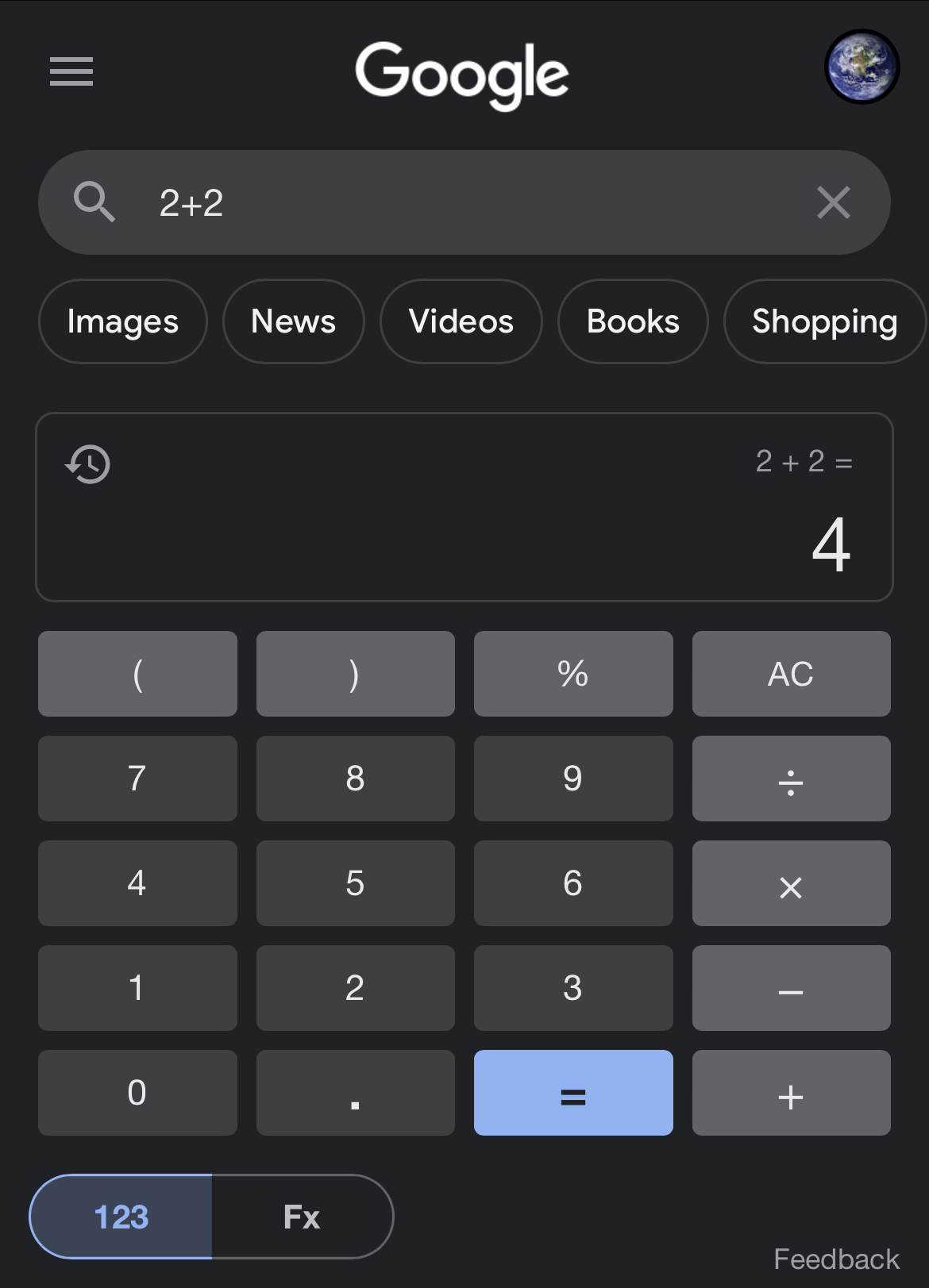
I will not bet in this market.
🏅 Top traders
| # | Trader | Total profit |
|---|---|---|
| 1 | Ṁ698 | |
| 2 | Ṁ144 | |
| 3 | Ṁ118 | |
| 4 | Ṁ78 | |
| 5 | Ṁ8 |
@girlboss Tell me what you think 2+2 equal to, and then I think we can make a lot of trade ;)
To be more direct. I think it is just belief in belief (https://www.lesswrong.com/tag/belief-in-belief). (Or maybe belief in the absence of a belief in this specific case)
I expect you will always, act, argue (about other subjects), and think, like you absolutely judge than 2+2=4.
Maybe you aren’t absolutely certain that 2+2=4, or maybe you don’t think that you have sufficient reasons to judge than 2+2=4, but these questions are not the same as the question of if you, actually, judge that 2+2=4 or not (which I am convinced you do).
@dionisos Or perhaps it is just a result of the doubt planted by chatGPTs ingenious arguments.
Firstly, we must consider the limitations of human cognition and language. As Immanuel Kant famously argued, our perceptions of reality are shaped by the innate structures of our mind, which impose certain categories and concepts onto the raw data of sensory experience. In this way, we can never truly know things as they are in themselves, but only as they appear to us through the lens of our cognitive apparatus.
Furthermore, the symbolic system of language is inherently limited and prone to ambiguity. The symbols "2," "+," and "4" that make up the proposition "2+2=4" are themselves abstractions that are subject to interpretation and translation. As such, the meaning of the proposition is dependent on the conventions of the language and culture in which it is expressed.
Secondly, we must consider the ontological status of numbers and mathematical operations. Are they real entities that exist independently of human cognition and language, or are they simply useful fictions that we create for the purpose of facilitating communication and problem-solving?
In the philosophy of mathematics, there are different schools of thought regarding the ontology of numbers and operations. Platonists, for example, argue that numbers and mathematical concepts have an objective existence in a realm of abstract entities that exists independently of the physical world. Constructivists, on the other hand, argue that mathematical objects are created through human activity and do not exist independently of the processes by which they are constructed.
Regardless of one's ontological stance, it is clear that the meanings and applications of mathematical concepts are dependent on the conventions and practices of the language and culture in which they are used. This means that the proposition "2+2=4" may not hold true in all contexts and situations.
For example, in certain mathematical systems such as modular arithmetic or non-standard analysis, the result of adding 2 and 2 may not be equal to 4. Moreover, in certain physical systems such as quantum mechanics or relativity theory, the classical laws of arithmetic and algebra may not apply.
In conclusion, the proposition "2+2=4" is not an absolute truth, but rather a contingent proposition that is dependent on the conventions of human cognition, language, and culture. To fully understand the nature and scope of mathematical concepts, we must recognize the limitations and contingencies of our symbolic systems and ontological frameworks.
@levifinkelstein We must take into account the epistemological limitations of human perception and cognition. As postmodernist philosophers have argued, our understanding of reality is shaped by the discursive structures and power relations of language and culture, which constrain and mediate our access to objective truth. In this way, the meaning of the proposition "2+2=4" is not an innate feature of reality, but rather a contingent construct of linguistic and cultural conventions.
The symbolic system of mathematics is not a neutral or transparent representation of objective reality, but rather a socially constructed and ideologically embedded discourse that reflects and reinforces dominant power relations and epistemic paradigms. As feminist philosophers of science have argued, the ontology and epistemology of mathematics are not separate from the broader socio-political context in which they are produced and used.
We must examine the ontological status of numbers and mathematical operations, which are not self-evident or transcendent entities, but rather cultural artifacts that are constructed through complex social, historical, and conceptual processes. As phenomenological philosophers have argued, numbers and operations are not "given" in some ahistorical or objective sense, but rather emerge from the embodied and situated experiences of human beings in the world.
The nature and meaning of mathematical concepts are not fixed or stable, but rather subject to constant revision and reinterpretation in response to changing historical, cultural, and epistemological contexts. As critical theorists have argued, the epistemology of mathematics is not a linear or cumulative process of accumulating objective knowledge, but rather a dynamic and contested terrain of discursive struggles and power relations.
@levifinkelstein Due to all of the issues I've raised I find it highly questionable that you should JUDGE the statement in question to be true, rather a display of epistemic humility by withdrawing judgement seems to be more appropriate to the situation.
@TobyBW I can make a calculator that says 2+2=5, this proves nothing, a calculator is only a reflections of the biases of the person who made it. If a racist made a calculator that says "black people" + "enslaved" = "good" does that make it right???
@levifinkelstein The fact that the symbols are subject to interpretations and translations is only about the meaning of "2", "4", "+", or "=", not about the actual proposition.
You can interpret a sentence in many ways, but the proposition is the interpretation of it.
The proposition "2+2=4" is actually an objective truth, at least the main interpretation of this sentence is (and other interpretation are just differences propositions).
Due to all of the issues I've raised I find it highly questionable that you should JUDGE the statement in question to be true, rather a display of epistemic humility by withdrawing judgement seems to be more appropriate to the situation.
The fact that she should judge it to be an objective truth or not, or that it would display epistemic humility or not, is almost certainly not an objective truth.
Contrary to the fact that 1+1=2, which is an objective truth.
It is clear from the statement that we are in the standard ring of integers, Z. In this ring, there is no funny happenstances, and 2+2=4. Any argument that claims we are in Z/mZ are false and unconvincing because it should be clear that the default assumption when not specified is the 'standard' integers, or Z.
Alternate solution: "Give me two dollars. Give me another two dollars. I have four dollars now. If you're not convinced, we can do this again."


